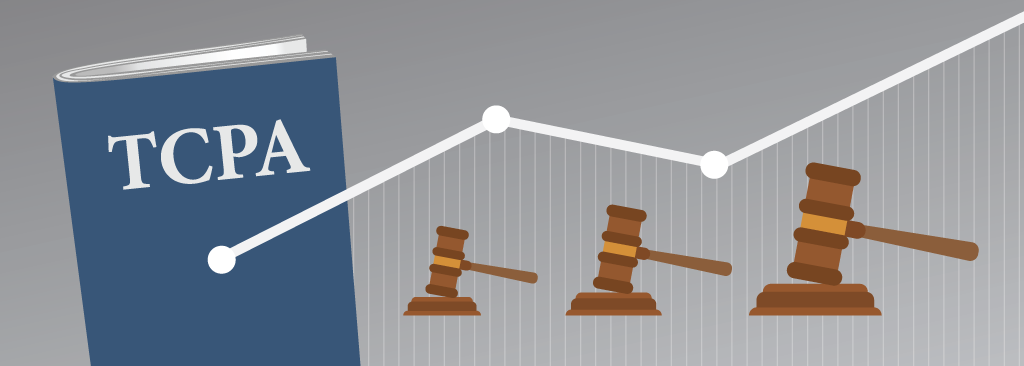Solutions to Common Causes of the Most Damaging TCPA Penalties
Complying with regulations is an inevitable part of doing business.
The call center industry is no different.
The TCPA (Telephone Consumer Protection Act) establishes many regulations that, if not followed, can lead to significant fines and lawsuits for call centers.
And U.S. lawmakers have added more provisions in recent years.
Just in the last month, the Stopping Bad Robocall Act passed the U.S. House of Representatives, potentially ramping up TCPA even more.
But call center managers can breathe a slight sigh of relief because TCPA penalties are usually attributable to a surprisingly small number of common causes.
Call centers dramatically reduce their risk by appropriately handling these causes.
Thankfully, managers now have access to better, smarter tools that are easy to use in the quest to stay compliant and nullify regulatory risks.
Just How Damaging Are TCPA Penalties?
Before diving into the common causes of the most damaging TCPA penalties, let’s consider how severe they can be.
It can’t be stressed enough: TCPA penalties are serious business, and call center managers must understand the severity of potential fines and lawsuits to protect themselves, their agents, and their operation.
This is especially true because TCPA-related lawsuits increased by 1,273% from 2010-2016, according to ACA International.
The data shows a clear trend in demand among both lawmakers and citizens for more transparency and protection from illegal contacts.
So, how much do these penalties cost?
Consumers can take legal action against offending companies to the tune of $500-$1500 per call or text.
The Federal Trade Commission (FTC) could also sue directly, especially if companies violate the National Do Not Call (DNC) registry.
In fact, FTC sued major companies like Dish Network and Dominos for $280 million and $9.7 million, respectively.
Those astronomical figures are enough to make any call center manager, small or large, pause.
Motivating as they are, the fines are not the only reason to stay compliant.
They can also use that motivation as a way to work on helping their agents build better relationships with customers – TCPA compliance means you’ll meet customers on their terms!
Call Recording and Transcription: Are They Really Necessary?
Now that we’ve established how severe TCPA penalties can be, let’s learn which practices increase the chance of violation and how call centers can maintain compliance with the most state-of-the-art software.
In any legal proceeding, a recording of events provides evidence that can potentially prove or disprove major claims made in the case.
That’s why, in navigating the TCPA regulatory landscape, it’s a no-brainer for call center managers to record and transcribe every inbound and outbound call their agents make.
Why? Let’s say a manager trains their staff on all things TCPA compliance-related (which we highly recommend).
Even if that manager delivers the highest quality, most thorough training, if there’s no call recording or transcription, there’s no way to verify that agents are upholding the law.
And the truth is: just one phone call could initiate a massive lawsuit.
Are Agents Receiving “Express Consent” From Customers?
Once call center managers have established a reliable call recording and transcription system, they are ready to keep most TCPA penalties at bay.
But one primary practice that plagues call centers and produces hefty fines is when calls are placed to customers without their express consent.
Call centers need to receive consent before using an auto dialing system or a prerecorded voice to dial customers in many situations.
That’s why creating a policy of gaining customer consent before firing off a campaign is essential.
This helps to prevent potential class-action lawsuits.
In addition to getting consent for certain types of contact as you establish a business relationship, managers and agents can also acquire consent by using:
- Website forms.
- Text messages.
- Voice recordings.
- Electronic signatures.
Not sure if you’ve updated your consents recently? That’s why TCN includes cell phone scrubbing, which allows call centers to remove the phone numbers of people who have withdrawn or have unclear consent from their call lists.
The National Do Not Call (DNC) List: Are Lists Updated?
As demonstrated before, companies that violated the DNC suffered huge fines.
The unfortunate part is that those fines were avoidable.
After all, call centers for those companies only had to do the following:
- Develop and maintain a firm, internal DNC policy, and list.
- Use software to upload DNC numbers into its database.
- Regularly update DNC lists to filter them against your campaigns.
The fact is, there are ways to achieve call center software excellence without sacrificing performance, if you have the right tools and policies in place.
